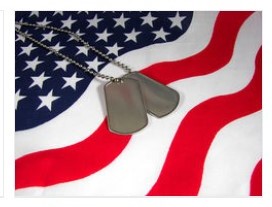Veterans
 Veterans
Veterans
Conducting a training series on Evidence Based Practices (EBPS) geared toward serving veterans, active military and their families. The goal of these trainings has been to improve access to evidence-based treatment for the target population, which a 2010 report from the Veterans Administration indicated was less than 30 percent of those receiving services. [Insert hyperlink that brings the reader to below]
From 2014 to 2018, NJMHI conducted a training series on evidence-based practices (EBPs) geared toward serving veterans, active military and their families. The goal of these trainings was to improve access to evidence-based treatment for the target population, which a 2010 report from the Veterans Administration indicated was less than 30 percent of those receiving services. In the first two years, the trainings that were provided included: cognitive behavioral therapy (CBT), motivational interviewing (MI), acceptance and commitment therapy (ACT), prolonged exposure therapy (PET) and parent management training (PMT). Three of these trainings – CBT, ACT and PET – are among the five specified in the Veterans Health Administration handbook as required for veterans with post-traumatic stress disorder (PTSD), depression and anxiety disorders. It became evident in 2014 and 2015 that engagement of this population by community-based providers was extremely difficult, so for the 2016 series, a full day training on military culture and engagement was substituted for the PMT. In 2017, suicide risk assessment replaced the military culture and engagement session.
Participation in the series in 2016 and 2017 doubled over the attendance in the first two years, and the number of “participating agencies/clinicians” consistently rose, as well. A partnering agency had to agree to have a minimum of five Master’s level clinicians attend all five trainings and participate in evaluations during evaluation years. The first two years had just one partner agency with six participating clinicians; in 2016, there were two partner agencies and 15 participating clinicians; in 2017, there were three partner agencies and 17 participating clinicians.
One partner agency in 2016 and all three partner agencies in 2017 are representatives of Certified Community Behavioral Health Clinics (CCBHCs). This was particularly exciting as it provided NJMHI the opportunity to have an even greater impact on access to evidence-based treatment for the veteran population since veterans are one of three target populations to be served by the CCBHCs, a model that reflects the future of behavioral health delivery.
In year one (2014), 25 clinicians from 17 organizations attended at least one training. Year two (2015) saw 26 participants from 14 organizations attend at least one training. The 2016 trainings were attended by 54 clinicians from 28 organizations, who received a total of 642 training hours. Overall, there were 47 clinicians from 26 agencies attending the 2017 trainings and receiving 616 training hours.
A distinction for the 2017 training series was that there were three partnering agencies with a total of 17 participating clinicians. These three agencies – CPC Behavioral Healthcare, Catholic Charities – Diocese of Trenton and Oaks Integrated Care – committed to having four to eight Master’s level clinicians attend all the trainings and participate in the evaluation (as compared to one partnering agency with five or six participating clinicians in the first two years and two partnering agencies with 15 participating clinicians in year three).
All three partnering agencies in 2017 were among the original seven New Jersey CCBHCs, a national integrated care demonstration program that provides a comprehensive continuum of services, not only for mental health and substance use disorders, but also for primary medical care, and ensuring social service supports, as well.
In the first year this training was provided (2014), NJMHI’s partnering agency had treated 13 veterans and family members within 16 months after the trainings were completed. In 2016, the 15 participating clinicians provided treatment to 19 veterans through September, just three months after the trainings concluded. In 2017, 19 veterans were served within just two months of the completion of the trainings.
